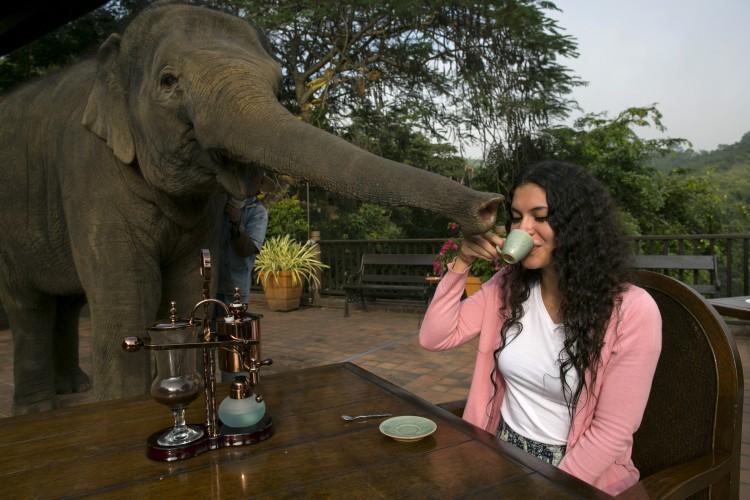More than 20 elephants in Northern Thailand’s Golden Triangle region produce the world’s most expensive coffee beans.
The elephants are being fed coffee cherries produced on nearby plantations, and then mahouts (elephant drivers) and their wives pluck the beans from the dung. The beans are then sun-dried and roasted.
The coffee, called Black Ivory, is said to have an earthy and smooth flavor, but costs $50 for a cup and $500 per pound. It was first unveiled last month at several luxury hotels in Thailand, Maldives, and United Arab Emirates. The total supply for 2012 is 50 kg (110 pounds) with hopes for that to increase in 2013, depending on manpower.
To make a single kilogram of roasted coffee (2.2. pounds), approximately 10,000 beans are picked. Some are lost in the process because elephants chew them.
Research by Dr. Massimo in the Department of Food Science the University of Guelph in Canada, shows that elephants’ digestive enzymes break down the coffee protein, which is one of the main things that makes coffee bitter.
“In contrast to carnivores, herbivores such as elephants use much more fermentation for digestion. Fermentation is desirable in coffee as it helps to impart the fruit from the coffee pulp into the bean,” according to the company’s website.
The result is a particularly smooth cup of coffee.
There are other types of coffee that are produced in a similar manner.
In Indonesia, farmers produce kopi luwak, or simply civet coffee, by feeding civets the beans and using them after they are excreted. It is also one of the most expensive varieties in the world, costing upwards of $700 per kilogram, or $320 per pound.
Research by Dr. Massimo in 2002 deemed the kopi luwak coffee safe.






